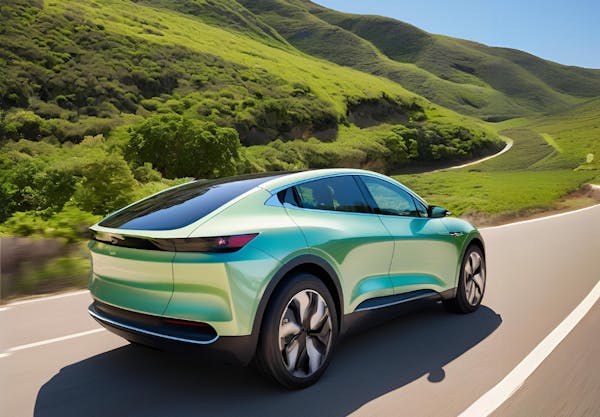Pulse of Information
Your source for the latest insights and updates.
Electric Cars: The Silent Revolution on Wheels
Discover the silent revolution of electric cars transforming our roads. Unleash the future of eco-friendly driving today!
How Electric Cars Are Shaping the Future of Transportation
The rise of electric cars is leading to a revolutionary shift in the future of transportation. As more consumers become environmentally conscious, electric vehicles (EVs) are quickly gaining popularity due to their eco-friendly features and low running costs. According to the Union of Concerned Scientists, EVs reduce greenhouse gas emissions significantly when compared to traditional gasoline-powered cars. This transition not only supports the fight against climate change but also empowers cities to tackle air pollution and improve urban living standards. The integration of EVs into public transport systems is further solidifying their role in creating a sustainable urban environment.
In addition to environmental benefits, the technological advancements in electric cars are propelling the automotive industry towards a smarter future. Features like autonomous driving, advanced connectivity, and enhanced battery technologies are setting the foundation for what is often referred to as the next generation of transportation. The growing network of charging stations and government incentives are further encouraging the adoption of EVs, making them more accessible to the average consumer. As a result, electric cars are not only reshaping the way we view personal mobility but also influencing global energy policies and economic strategies.

The Environmental Impact of Electric Cars: Myths vs. Reality
The rise of electric cars (EVs) has sparked numerous discussions about their environmental impact. Many proponents argue that EVs are a sustainable alternative to traditional vehicles, contributing to reduced greenhouse gas emissions. However, a common myth is that electric cars produce no emissions at all. In reality, while they emit zero tailpipe emissions, their overall environmental impact largely depends on how the electricity used to charge them is generated. For instance, sources like the EPA highlight that if an EV is charged using power from coal plants, the net emissions may not be significantly lower than those from conventional gasoline engines.
Additionally, the production of electric vehicles, particularly their batteries, raises environmental concerns. Myths surrounding the sustainability of battery production often overlook the intensive mining practices involved for materials like lithium and cobalt. According to Nature Energy, the extraction of these minerals can lead to habitat destruction and water pollution. Nevertheless, advancements in recycling technology and sustainable mining practices are emerging, which could mitigate these impacts. Thus, while electric cars represent a step towards a greener future, it is essential to remain informed about the realities of their lifecycle and strive for ongoing improvements in sustainability.
Top 5 Myths About Electric Cars Debunked
Electric cars have been subject to numerous myths that can mislead potential buyers. One common misconception is that electric vehicles (EVs) can't travel far on a single charge. In reality, many modern electric cars offer impressive ranges, often exceeding 250 miles, making them suitable for most daily driving needs. Consumers should also be aware that advancements in battery technology continue to improve range with each passing year.
Another prevalent myth is that electric vehicles are more expensive to maintain than their gasoline counterparts. In fact, electric cars typically have lower maintenance costs since they have fewer moving parts and do not require oil changes. Additionally, the cost of electricity is often less than that of gasoline, making EVs a more economical choice over time. By debunking these myths, potential buyers can make more informed decisions about their vehicle options.